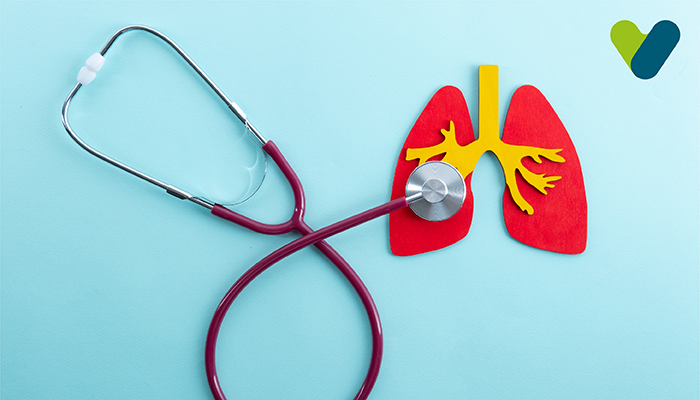Mycobacterium tuberculosis, a kind of bacteria which most commonly affects the lungs, is the causative agent for tuberculosis (TB). Tuberculosis can be cured and even prevented from infecting an individual. TB is generally transmitted from one person to another through air. The people with lung TB tend to sneeze, cough, or spit into the air, which leads to the spread of TB bacteria to their surrounding and ultimately to other people. Even when you only have inhaled limited levels of these microbes, you can easily get infected. According to statistics, approximately 25% of the world's population has suffered from tuberculosis bacteria at some point in time. One who has the disease but is not yet unwell cannot spread it to others. The indications of active tuberculosis (TB), such as coughing, fever, sweats, or loss of weight, may not be even noticed in an individual for a few months, which can lead to delay the medical care received by a patient; this may further result in the spread of TB to others. In one year, a person with active TB disease could infect 5–15 other individuals through close contact. Without essential care, 45% of HIV-negative and almost all of HIV-positive TB patients can die. Adults in their prime earning years are most commonly affected by tuberculosis. All age ranges, unfortunately, face the danger of acquiring TB disease. The majority of incidents and TB deaths take place in middle- and low-income nations. Active TB is 16 times more probable to occur in HIV-infected individuals than in rest of the population.
Use of tuberculosis medicine in the treatment of latent TB
You can have latent TB if you have the TB germs but don't show any signs of an active infection. Treatment is typically advised when you have latent tuberculosis and are under 65 years of age. Antibiotics used to cure TB, however, can harm the liver in elder people. Your TB team will go over the benefits and drawbacks of receiving therapy for latent TB with you if liver failure is a problem and you are between the ages of 35 and 65. If latent TB is considered treatment resistant, it may also not always be treated. If latent TB is believed to be medicine resistant, treatment may not always be effective. If this is the situation, you might be routinely checked to make sure the TB disease doesn't become active. When a patient needs immunosuppressive medication, including long-term steroid medications, chemotherapy, or biological inhibitors such as TNF inhibitors, evaluation and therapy for latent TB might be advised. This is due to the potential for the TB disease to become active.Latent TB is typically treated with the following:
Isonicotinic acid hydrazide (INH) – is a medication used to cure tuberculosis (TB) or stop it from coming back (reactivation). Rifampin –eliminates the latent TB bacteria before they can make you severely ill. Rifapentine –acts by preventing the growth of bacteria.Use of tuberculosis medicine in the treatment of active TB
If you are suffering from an active TB disease, you will likely receive treatment for 6 to 12 months with a combination of antibiotics. INH is frequently used in combination with the medicine pyrazinamide, rifampin, and ethambutol to cure the active TB disease. Even though you might start feeling better just a few weeks after administering the medication, TB treatment requires considerably more time than the treatment for other bacterial infections. To avoid getting sick again, to treat the illness easily in the future, or to prevent the spread of the illness to others, you should keep taking your medication as directed for the entire duration your doctor advises. Drug-resistant TB may also result from not completing your whole treatment course. Active TB is typically treated with: Ethambutol is an antimycobacterial drug, which is typically taken with other medications to cure tuberculosis. Isoniazid is used to treat TB or stop it from returning; it may be administered alone or combined with other medications. Pyrazinamide is used most frequently to cure active tuberculosis (TB) in the preliminary treatment phase. Rifampin has bactericidal (killing bacteria) properties and is a rifamycin antibiotic.Tips for taking TB medicine
It's crucial to establish a schedule if you are administering TB drugs. These methods will assist you in remembering to consume your TB drugs:- Take your medications daily at the same time.
- Mark the days on which you take your medication off on a calendar regularly.
- Purchase a pill dispenser with sections for every single day of the week. Fill it with your medications.
- To ensure that you are taking your medication each day, ask a family member to check in with you.
- If you forgot to take your medication, ask your doctor for assistance. Both alcohol and paracetamol can affect how well the drugs work. When taking TB medicines, consuming alcohol or paracetamol may result in reactions or adverse effects that could be harmful to your health. It is advised that you avoid drinking any alcohol while receiving treatment.

